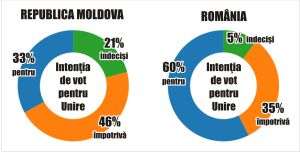Depositors that have amounts larger than the maximum guaranteed amount of 100,000 Euros have begun withdrawing their money, as demonstrated by the report of the Fund for the Guarantee of Bank Deposits (FGDB).
He says that, at the end of the second quarter of 2015, "the Romanian branches of foreign-owned banks have seen a 1.5% drop in the number of deposits, mostly caused by the withdrawals of big foreign currency deposits of non-resident companies which are part of the non-guaranteed depositors".
Some banking market officials, as well as some economic analysts think that withdrawals of money from bank deposits are led by the fear of the bail-in (the seizure of unguaranteed deposits, to save distressed banks).
The European law says that the bail-in procedure, together with other measures for the turnaround of banks, will come into effect in the beginning of next year, and Romania was supposed to have implemented the new regulations in 2014.
Because it has not yet transposed the European Directive concerning banking resolution, in the beginning of 2015, the European Commission launched the infringement procedure against Romania. As a result, in the beginning of this month, the Government approved the law which stipulates the confiscation of bank deposits, which is set to be approved in the Parliament as well.
In this context, economic analyst Ionel Blănculescu says: "If there are already withdrawals happening in banks, then that is probably related to the bail-in and the infringement procedure launched against Romania in the beginning of the year. People are being cautious, and capital is migrating towards other areas".
He recently warned that Romanian investors may withdraw their money from the domestic financial system to place it in safer banks, and said he was "an opponent of the bail-in".
Ionel Blănculescu emphasizes: "Capital is fearful, they say, and it runs away when measures like this bail-in are enforced. As for myself I say that capital is intelligent and that it migrates towards safe areas, in situations like this one (ed. note: if the risk of being subjected to the bail-in exists). That is why there will be substitute measures that will appear, because the bail-in is an aberration that needs to be avoided. If Singapore is now a safe area for me, as an investor, why should I not keep my money over there and keep it in Romania?"
The statements by our banking system sources confirm the suspicions of Mr. Blănculescu: "Perhaps following an excessive coverage of what the bail-in means and of the amount of guaranteed deposits, amid the situation in Greece, those who have bank deposits that exceed the amount guaranteed by the state are withdrawing them and splitting them across several banks, into deposits that are below the limit of 100,000 Euros, to make sure they are guaranteed".
Specialists think that the Law of Banking Resolution is unconstitutional, violating the depositors' right of ownership, guaranteed through the Constitution.
Bogdan Olteanu, deputy governor of the NBR recently confirmed that the bail-in is one of the tools proposed in order to save banks, in the Law recently approved by the Government, as it is one of the European provisions imposed by the Directive.
He told us: "The instrument called bail-in exists in the law, but it will only come into effect next year, and in Romania it would function to a lesser degree than in other countries, because we do not really have bank bonds issues, as it is the holders of such issues that would bear losses, along with bank shareholders". Also, depositors with deposits that exceed 100,000 Euros (the maximum guaranteed amount) will be affected in the event of a bail-in, the deputy governor of the NBR told us.
According to the banking resolution law, shareholders of the institution that is subject to the procedure will be the first to bear the losses of the distressed bank, followed by creditors, in line with the order of their claims as part of the insolvency proceedings, and juristic and natural persons that have contributed to putting the lender subject to the resolution procedure in a situation of major distress will be held liable according to civil or criminal law.
• FGDB: "Guaranteed deposits have increased 8.7%, from one year to the next"
Even though bank deposits found in the Romanian branches of foreign banks had decreased, as shown by the FGDB, on June 30th, 2015, at the level of the banking system, deposits amounted to 315.8 billion lei, up 2% compared to Q1 2015, due to the increase seen by the banks that are participating in the FGDB.
"After the first semester of 2015, deposits opened with the lenders participating in the FGDB amounted to 284.6 billion lei, representing 90.1% of the amount of the deposits from the Romanian banking system. The amount of the deposits guaranteed by the FGDB on June 30th, 2015 was 171.6 billion lei (60.3% of the total value of the deposits opened with lenders that are FGDB members)", the quoted report states.
The report says that in Q2 2015, deposits guaranteed by the FGDB have increased by 2.5 billion lei (up 1.5% since the beginning of the quarter), thus reaching the highest level in the last few years, "as a result of the increases seen on its components across the depositor categories and the denomination currencies". YOY, guaranteed deposits have increased 8.7%.
According to the FGDB, in Q2 2015, the movement of guaranteed deposits denominated in lei has re-entered positive territory, with a quarterly fluctuation of +0.8%. Guaranteed deposits denominated in foreign currencies have increased more than deposits denominated in lei (quarterly fluctuation of +2.6%), to 64.3 equivalent in billion lei.
The number of depositors guaranteed by the FGDB increased, in Q2, by 53,071 (individuals) and 14,284 (legal entities), to 14,696,782 guaranteed depositors (individuals and companies) on June 30, 2015.
Approximately 99.1% of the number of depositors guaranteed by the FGDB are residents, which hold 96.8% of the total value of deposits guaranteed by the FGDB.
83.3% of the guaranteed individual deposits are below the maximum guaranteed cap, and amount to 109.4 billion lei on the aforementioned date.
A positive dynamic has been seen on the segment of deposits that exceed the guarantee limit, with an increase of 0.2 billion lei, to 21.9 billion lei, at the end of the second semester.
After the drop in the first three months of 2015, in the second quarter the guaranteed deposits of individuals have increased 3%, to 40.3 billion lei, while staying at end-of-2014 levels. Resident legal entities hold 97.4% of the total amount of guaranteed deposits held by legal entities (39.3 billion lei), up 1.1 billion lei compared to the end of Q1 2015.
Deposits in lei of the households of the population have increased to 88 billion lei, at the end of H1 2015, up 8.2% (9.9% YOY in real terms). Over the same period, deposits in lei of the legal entities (non-financial entities and non-monetary financial institutions) have increased 9.1% (10.8% in real terms), to 63.87 billion lei.
According to data published by the NBR, year on year, non-governmental credit has decreased 0.1% (+1.4% in real terms), amid the 13.2% increase of the segment denominated in lei (15% in real terms) and of the 9.8% drop of the foreign currency component denominated in lei (denominated in Euros, foreign currency loans have decreased by 11.6%). Government credit has increased 9.1% (10.8% in real terms), to 87.78 billion lei.











































